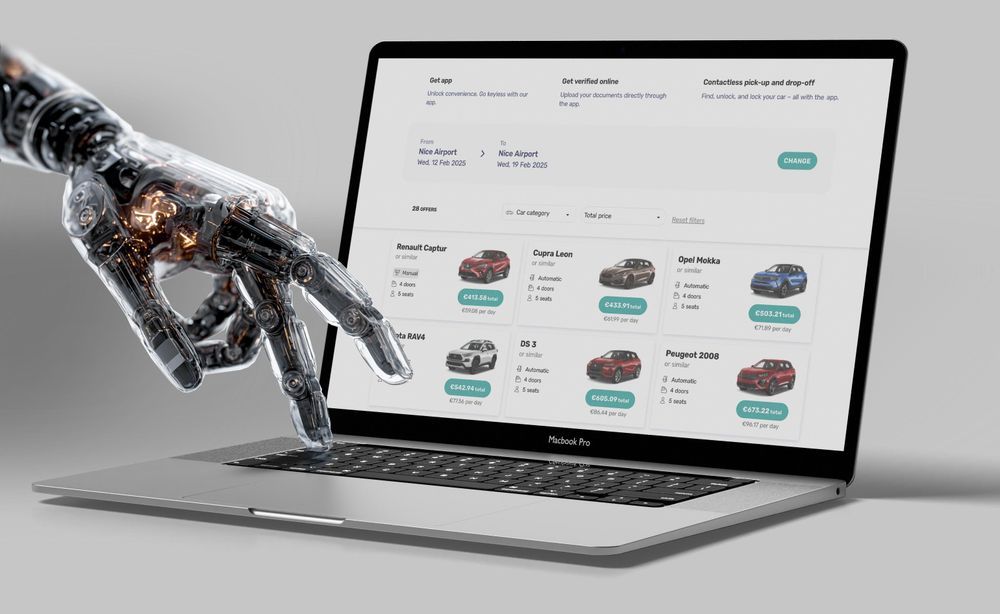Car sharing is a form of shared mobility that allows users to rent vehicles for periods of time, typically by the hour or minute. The cars are available round-the-clock, and the users have the flexibility to rent them whenever needed without relying on the operating hours of a rental desk. Instead, car sharing services rely on digital platforms, such as mobile apps or websites, for the entire process. This makes the service convenient for occasional drivers.
Users create an account, search for available vehicles in their vicinity, and book a car for their desired duration. They can locate and unlock the available cars using the app.
The vehicles are typically located in designated parking spots throughout a city and can be reserved in advance or on demand through a mobile app or website.
There are three general types of car sharing services.
1) Private for-profit
Private for-profit car sharing services are operated by private companies with the primary goal of generating profits. These companies own and manage a fleet of vehicles that customers can rent. The rental cost usually covers expenses such as fuel, insurance, and maintenance. The service is mostly available in high-density urban areas and caters to short rental periods. Instead of traditional rental desks, the cars are collected directly from the street or designated parking spots.
2) Cooperative non-profit
Cooperative car sharing services operate on a member-driven model. In these services, members actively participate in the operation, maintenance, and administration of the car sharing program. The vehicles used in these services are collectively owned or leased by the cooperative. Members of the cooperative have access to the vehicles as needed. The cooperative uses the membership fees to cover the costs of vehicle maintenance, insurance, and other operational expenses. The primary focus of these services is to provide a sustainable and affordable transportation option for their members.
3) Peer-to-peer (P2P)
Peer-to-peer car sharing involves individuals renting out their personal vehicles to others when they are not using them. This type of car sharing service is made available through online platforms or mobile apps that connect vehicle owners with potential renters. The owner sets the rental availability, pricing, and other conditions, while renters can search for available vehicles, make reservations, and use them for a specified period.
The benefits
Owning a car typically involves relatively high fixed costs. When the owner uses a car infrequently or for a limited amount of time per day, the fixed costs of car ownership can be even higher if compared to the actual usage.
Individuals who use cars only occasionally for errands or short trips can benefit from car sharing. The service offers them access to a vehicle whenever needed without having to worry about maintenance, insurance, lease payments, or parking.
Multiple users sharing a single vehicle help decrease the total number of cars on the road, thereby mitigating the environmental impact. The practise motivates individuals to reconsider their transportation habits by reducing the number of inefficient trips and encouraging a combination of different modes of travel.
The drawbacks
One of the drawbacks of car sharing is that the availability of vehicles may be limited, especially during peak hours or in high-demand areas.
Car sharing services are often designed for shorter trips, typically within urban areas. For longer journeys, relying solely on car sharing can be inconvenient, not only because it may require multiple rentals but also because of time constraints. Imposing time limits that may not be suitable for longer journeys. Furthermore, rental companies may request that, at the end of the rental, the vehicle be returned to the same location.
Often, cars in car sharing services cannot be cleaned or serviced after each user. If the previous user leaves the vehicle in an untidy state or with low fuel, it may frustrate the next user. Additionally, if a user has reserved a car but the previous user returns it late, it can disrupt the schedule of the subsequent user.
Synonym(s):
- Lift scheme
- Car club
- Vehicle pooling
- Car-sharing service
- Carsharing
- Car-sharing



